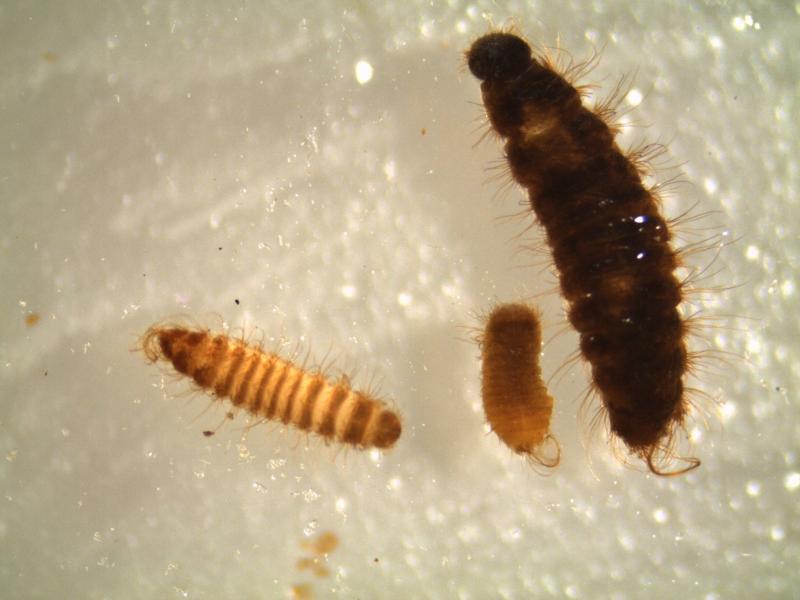World's most feared pest can lie dormant, survive harsh conditions
DALLAS -- U.S. Customs and Border Protection agriculture specialists stationed at the Dallas/Fort Worth International Airport learned in January that they intercepted Khapra beetles from passenger baggage on five different occasions in recent months.

Khapra beetle larvae and cast skins were found in rice and beans that passengers were bringing into the U.S.
Trogoderma granarium Everts (Dermestidae), commonly known as Khapra beetle, is considered the world’s most destructive insect for its ability to destroy stored grain, cereal, and stored foods; it is the only insect that requires regulatory action, whether encountered dead or alive.
“CBP agriculture specialists remain vigilant in safeguarding our agriculture industry and food supply by preventing the introduction of invasive harmful pests and plant diseases into the country,” said CBP Port Director Cleatus Hunt. “Khapra beetles have devastating effects on our agriculture production because they consume and contaminate stored grains such as rice, wheat, and oats.”
In all five instances, the passengers presented negative custom declarations for food items, but when asked directly about bringing agricultural goods in their luggage, they all amended their original declaration. Upon inspecting their luggage, CBP agriculture specialists discovered cast skins and live larvae. These specimens were found in packages of rice, dried beans, coriander seeds, and fava beans which arrived from Sudan and India.

Nine Khapra beetle larvae and cast skins were found in these Fava beans that were brought to the U.S. from Sudan.
Since 2013, CBP agriculture specialists at DFW have intercepted more than 70 Khapra beetle interceptions in passenger luggage. When CBP agriculture specialists collect an insect, the specimen is sent to U.S. Department of Agriculture entomologists for identification. According to the USDA, the Khapra beetle is one of the 100 worst invasive species worldwide. If the beetle is left undisturbed in stored grain, it can cause significant grain loss, and in the case of seeds, it can lead to significant reduction in seed viability.
In all five instances, the host materials that contained the Khapra beetle specimens were destroyed. CBP agriculture specialists have science-based degrees in the areas of agriculture, botany, entomology, biology, or plant pathology; all have the knowledge to recognize questionable and dangerous agricultural commodities.
On a typical day in 2014, CBP agriculture specialists intercepted 425 pests, 4,447 plant pests, and a significant quantity of quarantine material products to include fruits and vegetables, plant materials, meat products, meat by-products, and soil. More information about how CBP protects U.S. agriculture can be found at Protecting Agriculture on the CBP website.

